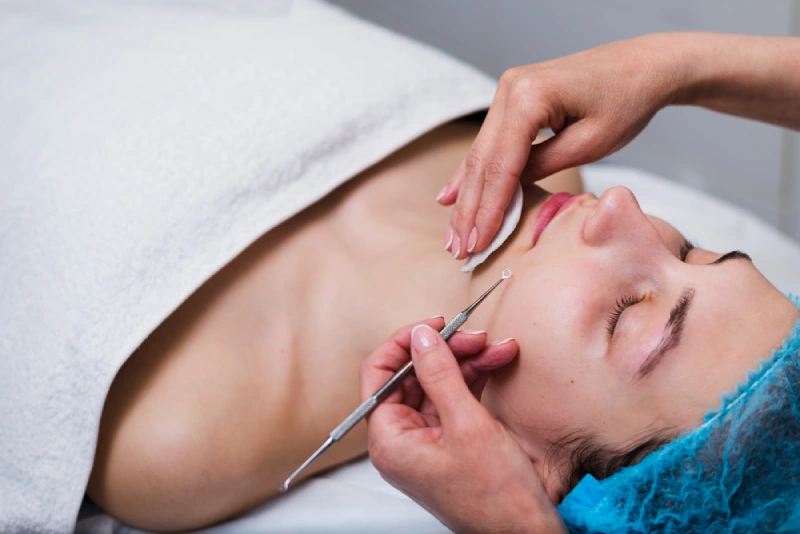In continuing our series of blog posts on psoriasis, we’re diving into the diagnosis and treatments. See our previous blog posts with general information about psoriasis, its comorbidities and chronic conditions associated with psoriasis.
A dermatologist or doctor can diagnose a person who suspects they have psoriasis. The patient’s skin, scalp, and nails are examined, and on occasion, a skin biopsy may be required to determine a diagnosis and to rule out other possible conditions. Before the biopsy, a small amount of local anesthetic is used to numb the area to be sampled. A small sample is taken and sent to the laboratory for a pathologist examination to confirm the diagnosis. Depending on the type of biopsy, a stitch or two may be required to close the skin and allow it to heal. With proper wound care, a biopsy can heal with minimal to no scarring.
Treatment for psoriasis can vary from traditional medication like creams, light therapy, pills or injections, to alternative medication like supplements, foods or plant based treatments.
Topical treatments
Topical treatments are available as creams, lotions, ointments, solutions or oils that can be applied to the skin to treat psoriasis. These include topical steroids, vitamin D based topicals, vitamin A or retinol based topicals, immune system deactivating topicals, salicylic acid topicals and moisturizers. Although most effective topicals are available by prescription from a doctor, there are some creams available over-the-counter.
Light therapy
Light therapy, also known as phototherapy, including sunlight, UVB, PUVA, and excimer laser are traditional methods of treating psoriasis. Each type of phototherapy is different and results vary based on the severity and location of psoriasis on the body. Light therapy is very safe and does not come with many side effects.
Oral medications
Oral medications are available for psoriasis and includes methotrexate, cyclosporine, retinoids and Otezla. These essentially help suppress the immune system and inflammation in the body.
Biologic medications
Biologic medications are drugs that change the immune system and are used to treat moderate and severe psoriasis. For example, Otezla is an approved biologic medication that comes in a pill. All other approved biologic medications are injections, including Humira, Remicade, Enbrel, Simponi, Stelara, Cosentyx and Taltz among others. Traditionally, these injections are selected after topical or other traditional treatments are ineffective in treating psoriasis.
Home remedies
Alternative and home remedies include moisturizers, daily baths, short exposures to sunlight, consuming anti-inflammatory foods, avoiding alcohol or other psoriasis triggers. Check out our social media posts on anti-inflammatory foods like turmeric, ginger, green tea and green leafy vegetables to learn more!
Exercise
Frequent exercise, a diet limiting intake of foods high in fat and sugar, and practicing meditation or stress-relieving activities are all great ways to immediately start treating psoriasis.
In essence, an effective psoriasis treatment plan will include the needs of a patient, medical recommendations from the doctor and other available treatments based on the diagnosis. Each case of psoriasis is different, so one patient may be comfortable with more traditional medical treatments while another patient may want to use alternative treatments to avoid prescription medications. By working closely with your board-certified dermatologist, you can be educated about this condition and create an effective treatment plan.
At Skin Joy Dermatology, we place value in educating our patients about psoriasis and presenting all treatment options so an educated decision can be made together. Visit our website today to book a consultation.




